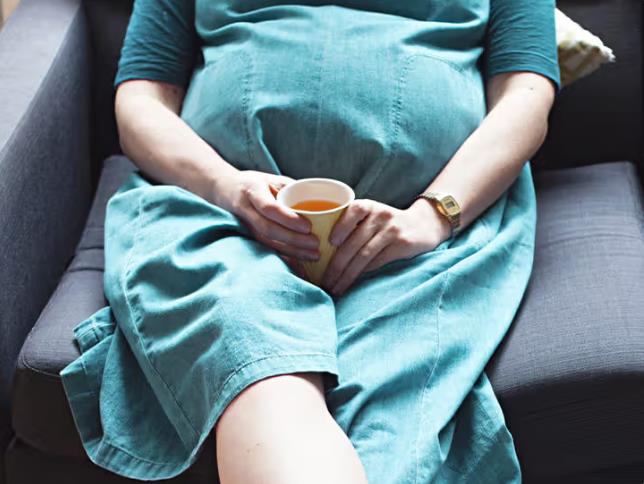Content Menu
● Understanding Green Tea Extract
>> Benefits of Green Tea
● Caffeine Content in Green Tea
>> Caffeine Guidelines for Pregnant Women
● Potential Risks of Green Tea Extract During Pregnancy
● Studies on Green Tea Extract and Pregnancy
● Recommendations for Pregnant Women
● Lifestyle Considerations During Pregnancy
● Conclusion
● FAQs
>> 1. Can I drink green tea while pregnant?
>> 2. What are the risks associated with drinking too much green tea during pregnancy?
>> 3. How does caffeine in green tea compare to coffee?
>> 4. Should I avoid green tea entirely during my first trimester?
>> 5. Are there any benefits to drinking green tea while pregnant?
● Citations:
Green tea has gained popularity over the years due to its numerous health benefits, attributed mainly to its high content of antioxidants known as catechins. However, when it comes to pregnancy, many expectant mothers are left wondering whether consuming green tea extract is safe. This article delves into the safety of green tea extract during pregnancy, examining its potential effects on both the mother and the developing fetus.

Understanding Green Tea Extract
Green tea is derived from the leaves of the *Camellia sinensis* plant and is known for its rich concentration of polyphenols, particularly catechins. The most studied catechin is epigallocatechin gallate (EGCG), which is believed to provide various health benefits, including anti-inflammatory and antioxidant properties.
Benefits of Green Tea
- Antioxidant Properties: Green tea is rich in antioxidants that help combat oxidative stress.
- Weight Management: It may aid in weight management by boosting metabolism.
- Heart Health: Some studies suggest that green tea may support cardiovascular health by improving cholesterol levels.
- Blood Sugar Regulation: Green tea has been shown to help regulate blood sugar levels, which can be beneficial during pregnancy when women may experience gestational diabetes.
- Digestive Health: The polyphenols in green tea can promote a healthy gut microbiome, potentially aiding digestion during pregnancy.
However, these benefits must be weighed against potential risks during pregnancy.
Caffeine Content in Green Tea
One of the primary concerns regarding green tea consumption during pregnancy is its caffeine content. A typical cup of green tea contains about 20 to 50 mg of caffeine, significantly lower than coffee, which averages around 100 mg per cup.
Caffeine Guidelines for Pregnant Women
- Moderate Intake: Most health organizations recommend limiting caffeine intake to less than 200 mg per day during pregnancy. This equates to approximately four cups of green tea per day.
- First Trimester Caution: It is advisable for pregnant women to limit caffeine intake during the first trimester, a critical period for fetal development.
Potential Risks of Green Tea Extract During Pregnancy
While moderate consumption of green tea may be safe, excessive intake can pose risks:
- Folic Acid Absorption: Studies indicate that high amounts of catechins may inhibit folic acid absorption, increasing the risk of neural tube defects in the developing fetus. Pregnant women who consume more than three cups daily may face this risk.
- Caffeine-Related Risks: High caffeine intake has been associated with an increased risk of miscarriage and low birth weight.
- Liver Function: Some research suggests that excessive consumption of green tea extract could affect liver function, although this is more commonly associated with concentrated extracts rather than brewed tea.
- Iron Absorption: Green tea can inhibit the absorption of non-heme iron (the type found in plant foods). This could be a concern for pregnant women who need to maintain adequate iron levels to support increased blood volume and fetal development.

Studies on Green Tea Extract and Pregnancy
Research on the effects of green tea extract during pregnancy has yielded mixed results:
1. Animal Studies: Animal studies have shown that high doses of green tea extract can lead to developmental issues in offspring. For instance, one study indicated that doses exceeding 600 mg/kg/day resulted in significant histological changes in fetal brain development.
2. Inflammatory Response: Another study found that maternal consumption of green tea extract altered inflammatory responses in both mothers and their offspring, suggesting a potential impact on metabolic programming.
3. Human Studies: Limited human studies suggest that moderate consumption (up to six cups per day) may be safe; however, more research is needed to confirm these findings conclusively.
4. Cognitive Development: Some studies have explored the impact of maternal diet on cognitive development in children. While moderate green tea consumption might not pose risks, excessive intake could potentially influence cognitive outcomes due to its effects on fetal brain development.
Recommendations for Pregnant Women
Given the potential risks associated with high consumption of green tea extract during pregnancy, here are some recommendations:
- Limit Intake: Pregnant women should limit their intake to one or two cups per day, particularly during the first trimester.
- Consult Healthcare Providers: Always discuss dietary choices with healthcare providers who can offer personalized advice based on individual health needs and circumstances.
- Monitor Symptoms: If consuming green tea or extracts leads to any adverse symptoms such as nausea or headaches, it may be wise to reduce or eliminate intake.
- Consider Alternatives: If you enjoy herbal teas or other beverages with lower caffeine content and fewer potential risks, consider switching to those options during pregnancy.
Lifestyle Considerations During Pregnancy
In addition to monitoring caffeine intake from beverages like green tea, pregnant women should consider other lifestyle factors that contribute to overall health:
- Balanced Diet: Focus on a well-rounded diet rich in fruits, vegetables, whole grains, lean proteins, and healthy fats. This will ensure adequate nutrient intake for both mother and baby.
- Hydration: Staying well-hydrated is crucial during pregnancy. Water should be your primary beverage choice; herbal teas without caffeine can also be good alternatives if you desire variety.
- Regular Exercise: Engage in safe physical activities as recommended by your healthcare provider. Exercise can help manage weight gain and improve mood during pregnancy.
- Stress Management: Practice relaxation techniques such as yoga or meditation to reduce stress levels, which can positively impact both maternal and fetal health.
Conclusion
In summary, while moderate consumption of green tea extract appears to be safe for most pregnant women, excessive intake can pose risks related to caffeine content and folic acid absorption. Pregnant women should aim for moderation and consult healthcare professionals regarding their dietary choices during this critical time.
Maintaining a balanced diet and healthy lifestyle will further support a healthy pregnancy while allowing for occasional enjoyment of beverages like green tea within recommended limits.

FAQs
1. Can I drink green tea while pregnant?
Yes, moderate consumption (up to two cups per day) is generally considered safe during pregnancy.
2. What are the risks associated with drinking too much green tea during pregnancy?
Excessive intake can lead to reduced folic acid absorption and increased caffeine-related risks such as miscarriage or low birth weight.
3. How does caffeine in green tea compare to coffee?
Green tea contains significantly less caffeine than coffee—about 20-50 mg per cup compared to 100 mg in a standard cup of coffee.
4. Should I avoid green tea entirely during my first trimester?
It is advisable to limit caffeine intake during the first trimester; thus, reducing or avoiding green tea may be beneficial during this period.
5. Are there any benefits to drinking green tea while pregnant?
Moderate consumption may offer antioxidant benefits and improve overall hydration but should be balanced with potential risks.
Citations:
[1] https://mothertobaby.org/baby-blog/should-pregnant-women-get-the-green-light-to-drink-green-tea/
[2] https://www.webmd.com/vitamins/ai/ingredientmono-960/green-tea
[3] https://pmc.ncbi.nlm.nih.gov/articles/PMC5790015/
[4] https://pmc.ncbi.nlm.nih.gov/articles/PMC8324952/
[5] https://www.nature.com/articles/s41598-019-40328-9
[6] https://www.nature.com/articles/s41598-018-20174-x
[7] https://efsa.onlinelibrary.wiley.com/doi/10.2903/j.efsa.2018.5239
[8] https://journals.plos.org/plosone/article?id=10.1371%2Fjournal.pone.0199969
[9] https://pmc.ncbi.nlm.nih.gov/articles/PMC6051583/
[10] https://www.healthline.com/health/pregnancy/green-tea-while-pregnant






























